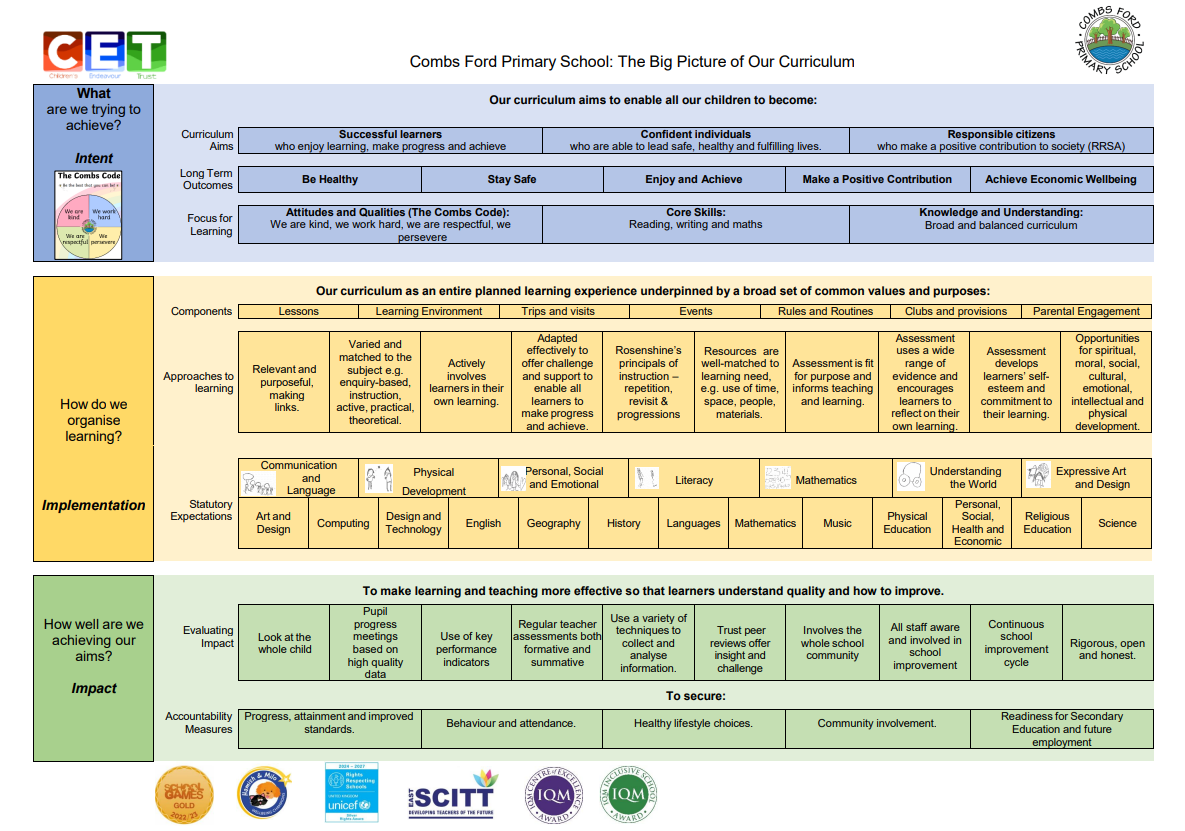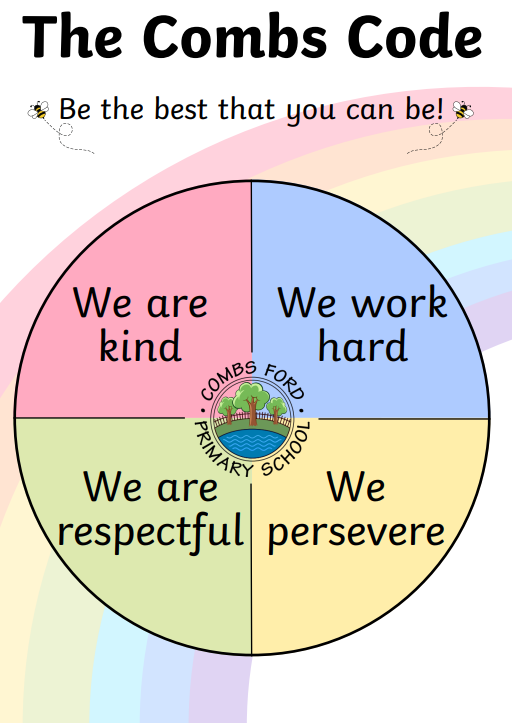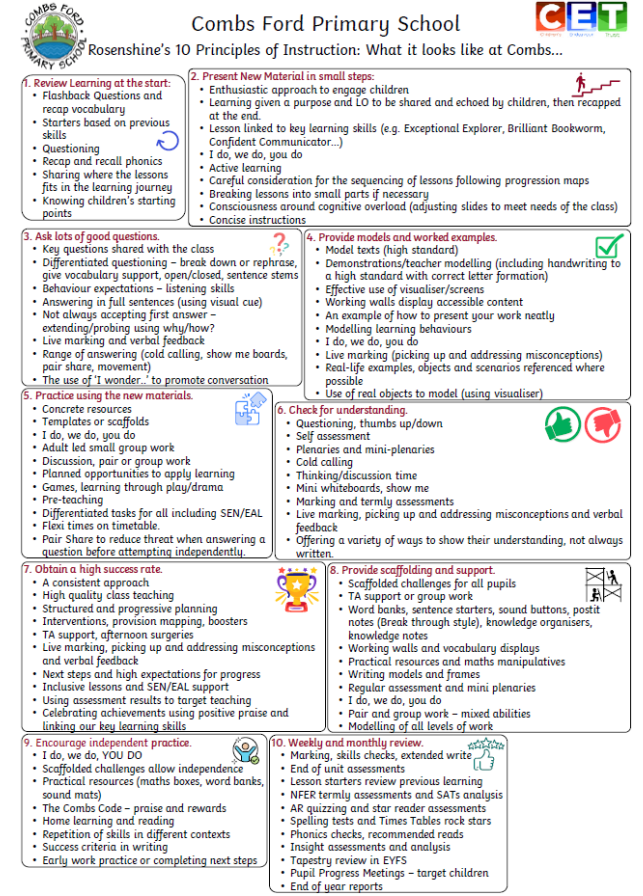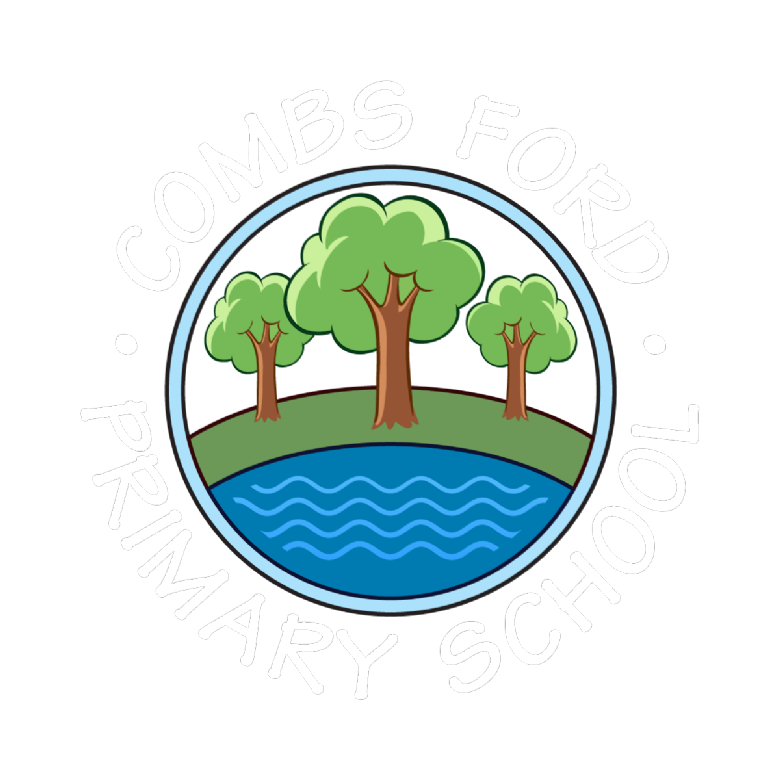Our Curriculum
Intent
At Combs Ford Primary School, our intent is to provide a curriculum framework which offers exciting and meaningful learning opportunities. We want our pupils to be inspired and motivated, enabling them to ‘be the best they can be’. Our holistic approach to learning is underpinned by our core values (The Combs Code) that aim to unlock every child’s intellectual, emotional, social, physical, artistic, creative and spiritual potential. We recognise the importance of developing these attributes in helping to ensure our young people flourish within a broad and balanced setting.
We have high expectations of all our pupils and threaded throughout our curriculum is an ethos which helps our children recognise that anything is possible through hard work and effort. Throughout their journey in our school, we intend to develop articulate, caring children with a thirst for knowledge. We want our pupils to be resilient individuals who are not afraid to take risks in their learning. Our children will know how to lead healthy lives both physically and emotionally and embrace the culturally diverse community we live in and celebrate. We are determined that by the time our children are ready to leave our school, they will be confident, successful students and role models.
The 'Big Picture of Our Curriculum' recognises that children learn not just in lessons, but also through the routines of the school, the events that we organise and the out-of-hours learning opportunities that we provide.
The Big Picture of Our Curriculum is built around three questions:
- What are we trying to achieve?
- How do we organise learning?
- How well are we achieving our aims?

 1. What are we trying to achieve?
1. What are we trying to achieve?
A Combs Ford education is broader than just an academic education and this is captured in our curriculum aims, our long-term outcomes and our focus for learning. Our driving question is, “Will this set of learning experiences enable our children to meet the goals we set?”
Our curriculum aim is to enable all our children to become:
- Successful learners who enjoy learning, make progress and achieve.
- Confident individuals who are able to lead safe, healthy and fulfilling lives.
- Responsible citizens who make a positive contribution to society.
Our five long-term outcomes for our children are:
- Being Healthy: enjoying good physical and mental health and living a healthy lifestyle.
- Staying Safe: being protected from harm and neglect.
- Enjoying and Achieving: getting the most out of life and developing skills for adulthood.
- Making a Positive Contribution: being involved with the community and society and not engaging in anti-social or offending behaviour.
- Economic Wellbeing: not being prevented by economic disadvantage from achieving their full potential in life.
The attitudes and attributes we nurture in our children are known as:

The foundation skills – the skills our children need to access learning at any stage – we develop are:
- mathematics and numeracy;
- spoken language;
- reading;
- writing;
- vocabulary.
Our curriculum is driven by key knowledge and understanding about the big ideas that shape the world and our culture (laid out in part by the EYFS Framework and the National Curriculum).
2. How do we organise learning?
The Combs Ford Curriculum (which breaks down the National Curriculum objectives using both bespoke and published schemes) is used as the expectations for all children. Our Curriculum has been designed to be broad and balanced and is designed to build knowledge and skills in a clear, structured way that supports all learners. Lessons are carefully sequenced to introduce new concepts gradually, with plenty of opportunities to revisit and reinforce previous key facts, skills and relevant vocabulary. Our curriculum is supported by Rosenshine’s 10 Principals of Instruction (see below), which promotes clear instruction, regular review, and guided practice, helping pupils build strong foundations and learn more effectively.

The Big Picture of Our Curriculum recognises that pupils do not just learn within lessons but through many different activities both within and outside the normal school day. The statutory expectations for the Early Years and Foundation Stage (EYFS) and the National Curriculum subjects are an important part of this, but so are our rules and routines, educational visits, visitors to school, assemblies and extra-curricular activities.
You can see how subjects are organised over a school week on the Timetables page.
3. How well are we achieving our aims?
Learning is a change in long term memory. We know that children have made progress because they know more, remember more and are able to do more of our aims.
To determine how well we are achieving our aims, we use a wide range of methods of capturing success so we can measure:
- Progress, attainment and improved standards.
- Behaviour and attendance.
- Healthy lifestyle choices.
- Community involvement.
- Readiness for Secondary Education.
An Evolving Curriculum
The 'Big Picture of Our Curriculum' is constantly evolving as we learn from evaluating its impact and from education research. There are always aspects of our curriculum that are under review and that we are refining for the benefit of our children.
You can find more information about each area of the curriculum on its individual page.
For more information, please see our Curriculum Policy below.
